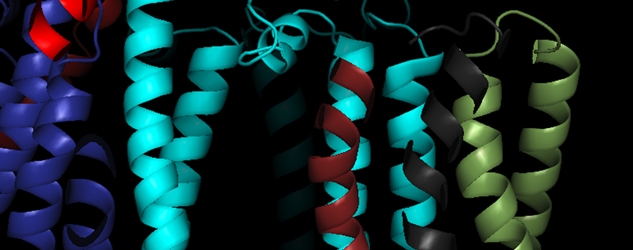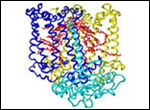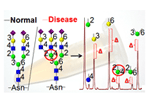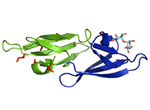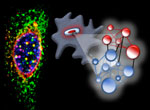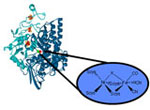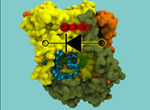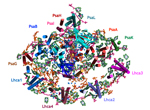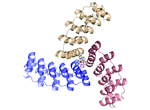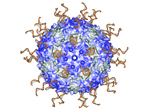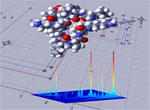Protein Biochemistry and Engineering
ASU students are revolutionizing structural analysis of membrane-bound proteins using femtosecond nanocrystallography and high field NMR, defining the roles of proteins and their complexes in disease and biological function, building novel de novo proteins both in the lab and in computers for applications in energy conversion and biosensing, and characterizing the astonishing physical properties of proteins in spider silk.
Protein structure and function, X-Ray crystallography, photosynthesis, bacterial cofactors
Analytical biochemistry, mass spectrometry, protein posttranslational modifications, disease markers
De-novo protein design and engineering, enzyme mechanisms, protein structure
Novel fluorescent probes, single cell genomics and proteomics, cancer biology, neuroscience
Bioinorganic chemistry, electrochemistry, hydrogenases, de novo protein design and engineering, redox enzyme mechanisms, alternative energy generation
Proteomics, biomarkers, cancer, diagnostics, protein arrays
Theoretical chemistry, condensed media, optical spectroscopy, electron transfer, proteins, phase and glass transition
Photosynthesis, membrane proteins, genetics, structural biology
Protein Engineering, Computational Protein Design, Unnatural Amino Acids, Directed Evolution
Protein- and peptide-DNA nanotechnology, organic bioconjugation chemistry, self-assembly, nano-machines and devices, materials for biology and medicine
Experimental quantum biosensing; biophysics and protein sciences; diamond material; NMR; microscopy
Solid-state NMR and MRI, soft matter research, disordered materials, biopolymers, battery and fuel cell materials, polyamorphism, nano-materials, high-pressure chemistry, quantum computation, laser scattering spectroscopy, neutron, electron and xray diffraction of amorphous materials
